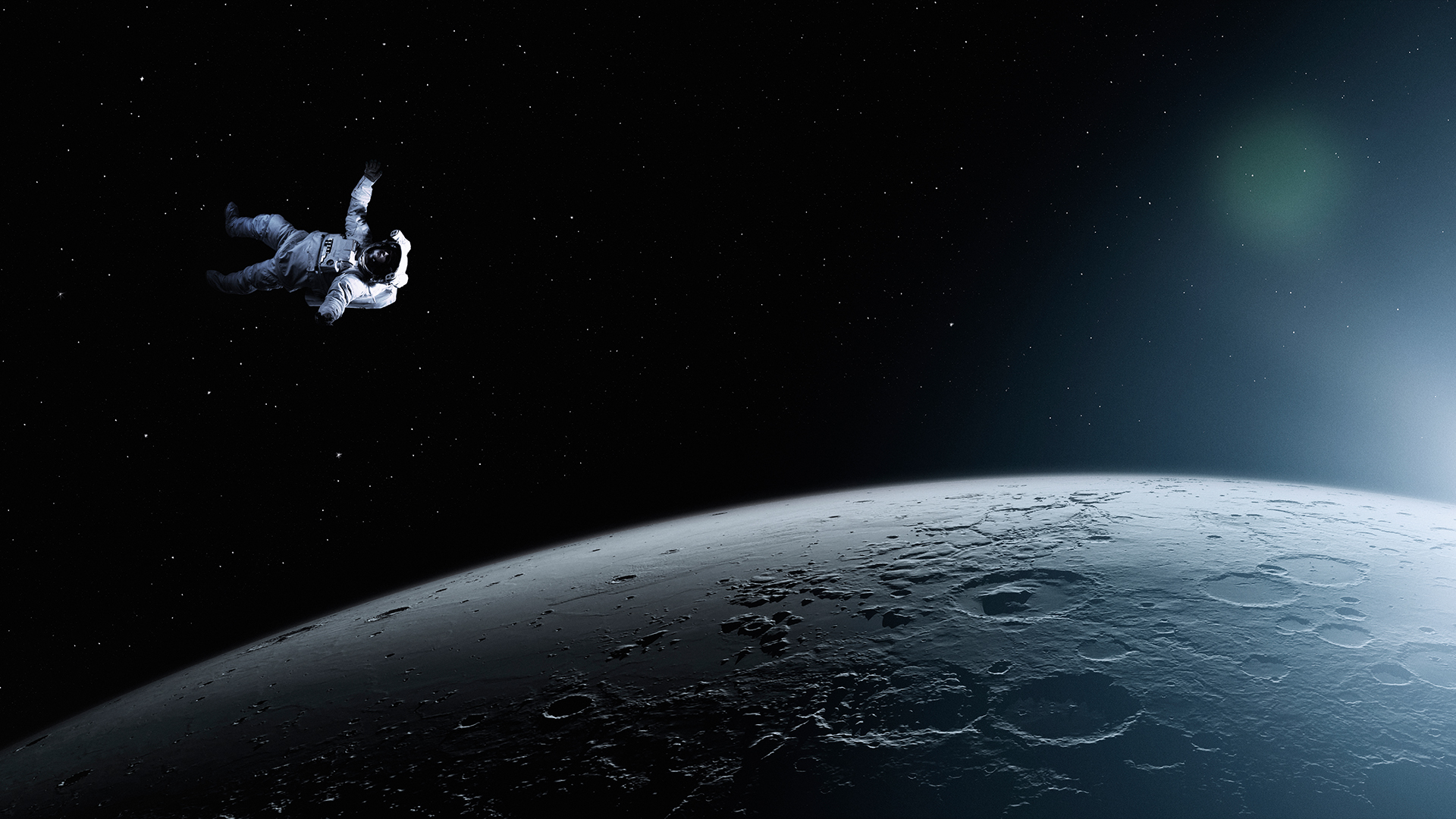What would happen to a dead body in space?
Space is a harsh place, with freezing temperatures, harmful radiation and a near-vacuum. So, what would happen to the body of an astronaut that was exposed to space's elements?

Let's imagine an astronaut suddenly collapses during a spacewalk and dies of cardiac arrest only minutes later.
Thankfully, this has never happened. While 21 people have died in space, spacecraft malfunctions that killed the entire crew, rather than health issues that affected only one person, have been to blame. But if a crewmember did die and others remained, they would have to do something with the body — or else risk contamination as the body began to decay. One option? Release it into space.
Out in the harshness of space, how would a dead body break down? And where could it end up?
Related: How long does it take for a body to decompose?
In the low-pressure vacuum of space, any liquid from the body's surface — the skin, eyes, mouth, ears and lungs — would immediately turn to gas, Jimmy Wu, chief engineer at the Translational Research Institute for Space Health at the Baylor College of Medicine in Texas, told Live Science. Blood vessels near the surface could also rupture and bleed, even after death, Wu added.
The remaining water in the body would likely freeze, Wu said, due to space's low baseline temperature of minus 454.81 degrees Fahrenheit (minus 270.45 degrees Celsius). Liquid loss, plus freezing, could cause a mummified state, essentially preserving the body. "What it might look like is some sort of dehydrated body that's now in space," Wu said.
Any astronaut exposed to space without a spacesuit would meet this fate. What would happen next would depend on if any bacteria were around.
Sign up for the Live Science daily newsletter now
Get the world’s most fascinating discoveries delivered straight to your inbox.
Research on the International Space Station (ISS) has shown that bacteria can survive in space for at least three years. If bacteria were still alive on the body, they would begin to digest it. While most of space is extremely cold, space can also be hot — temperatures on the surface of the ISS can range from minus 328 F to 392 F (minus 200 C to 200 C). In a hotter setting, decomposition would greatly accelerate.
Powerful radiation in space would also likely do a number on the body, breaking apart carbon bonds and causing the skin and muscles to degrade.
After being jettisoned from the spacecraft, the dehydrated and decomposing body would go into orbit, following the direction in which it was pushed out — unless it encountered another object.
With all the space debris and satellites in orbit around Earth, running into one "is actually a risk" a dead body could face, Myles Harris, a doctoral student at the University College London Institute for Risk and Disaster Reduction, told Live Science.
To avoid this risk, NASA recommends going further into space and "leaving planetary orbit" before releasing a body. "It's a hard object, right?" Wu said. A collision between a body and a spaceship or satellite could cause real damage — to both parties.
If the body did avoid collision with satellites and space junk, over time it would slowly be drawn toward Earth by the pull of gravity, especially if the death occurred within low Earth orbit, or about 1,200 miles (2,000 kilometers) or less from Earth. Eventually, in what would probably be the most dramatic part of the cadaver's journey through space, it would reenter the atmosphere and burn up.
Releasing a body from a spaceship isn't the only option after death. Space burial is another possibility, although it comes with the risk of contaminating planetary surfaces. NASA is also developing a body bag that could preserve remains on a spaceship for 48 to 72 hours — plenty of time to return to Earth from the International Space Station. But if trips were far away, like a Mars mission with a seven-month flight back to Earth, crews would have to find other options.
As spaceflights venture farther from Earth, NASA is preparing mission mortality procedures. The commercial spaceflight industry should plan for how to handle death in space too, Wu said.
"Hopefully it never happens, but it might," Harris said. And if it does, it's better to be prepared.

Carrie Klein is a freelance science journalist, with a specialty in covering climate change and renewable energy. She has been published in Scienceline, The Boston Guardian, and The Indypendent and serves as senior editor at NYU's Scienceline. Carrie graduated from Oberlin College with a dual degree in English and environmental studies and is currently earning her master's degree in science journalism from New York University.









